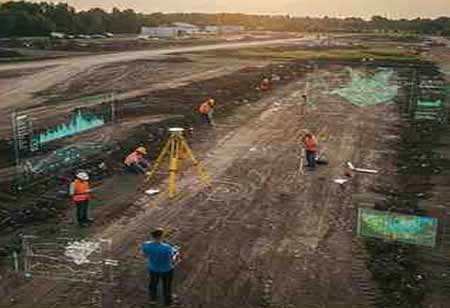Thank you for Subscribing to Construction Business Review Weekly Brief
Specials
- MEP Canada
- Kitchen and Bath
- Decking Canada
- Architectural Glass Europe
- MEP APAC
- Construction Saudi Arabia
- German Apartment and Condominium Contractors
- Construction Law APAC
- Outdoor Construction
- Foundation Construction Canada
- Building Sealing Solutions Europe
- Apartment and Condominium Contractors Canada
- Cold Storage Construction APAC
- Precast Concrete Europe
- Construction Staffing Europe
- Pre-Construction Services
- Flooring System APAC
- Scaffolding Canada
- Swimming Pool Construction Canada
- Construction Management Canada
- Dummy
- Building Restoration and Maintenance Canada
- Residential Construction
- Concrete Canada
- Construction Cladding Europe
- Construction Cladding APAC
- Concretes, Aggregates and Construction Materials APAC
- Concretes, Aggregates and Construction Materials Europe
- Commercial Contractors Europe
- Commercial Contractors APAC
- Cold Storage Construction Canada
- Flooring Systems Europe
- Construction Management APAC
- Landscaping Canada
- Construction Coating Europe
- Construction Tech Startups Europe
- Insulation Services Europe
- Mechanical Contractor Canada
- Mould Remediation and Testing Europe
- Swimming Pool Construction APAC
- Construction Engineering Services
- Mechanical Electrical and Plumbing
- Roofing Systems Europe
- Architectural Glass APAC
- Startups APAC
- Forensic and Owners Representative
- Flooring System
- Waterproofing APAC
- Wall Systems
- Safety and Compliance Europe
- Construction Bidding and Auctions
- Modular and Prefab Construction
- Architectural Glass
- Construction MENA
- Construction Demolition and Recycling Europe
- Modular Construction Europe
- Construction Interiors
- Steel Building APAC
- HVAC
- Doors and windows
- Modular Construction APAC
- Insulation, Coating and Waterproofing
- Building Information Modeling APAC
- Sustainable Construction APAC
- Building Restoration and Maintenance
- Commercial Contractors
- Specialty Construction
- Construction Engineering Canada
- Construction Engineering MENA
- Modular Construction Canada
- Roofing and Siding Systems
- Construction Latam
- Workforce Management and Staffing
- Roofing Systems APAC
- Construction Consulting
- Steel Building Europe
- Construction Demolition and Recycling APAC
- Safety and Compliance APAC
- Concretes, Aggregates and Materials
- Construction Cladding
Growth, Innovation, and Challenges: The State of the Land Surveying Industry
The land surveying consulting profession is critical to developing residential and commercial real estate, infrastructure, and public projects.

By
Construction Business Review | Wednesday, April 16, 2025
Stay ahead of the industry with exclusive feature stories on the top companies, expert insights and the latest news delivered straight to your inbox. Subscribe today.
The land surveying consulting profession is critical to developing residential and commercial real estate, infrastructure, and public projects. Land surveyors provide crucial information for construction projects, property developments, and land ownership-related legal concerns. Land surveying firms are essential to the planning and designing of new buildings and redevelopment as urbanization and infrastructure developments expand globally. This ever-changing business has a plethora of opportunities and challenges, all of which are defining the future of land surveying consulting.
Technological Advancements and Efficiency
The incorporation of new technologies has dramatically altered the land surveying sector. Geographic Information Systems (GIS), drone surveying, and Global Positioning System (GPS) technologies improve data collecting and processing. These innovations allow surveyors to work more effectively and give accurate results in less time than traditional approaches. Drones, for example, enable the collection of high-resolution airborne data in remote or hazardous areas, minimizing the need for human labor.
Cloud-based software has also increased efficiency by allowing real-time communication. Surveyors may rapidly communicate data with customers, engineers, and architects, expediting decision-making and reducing turnaround time. This transition to digital solutions is vital as the sector fulfills the needs of new infrastructure projects requiring speed and accuracy.
Despite technical advancements, land surveying companies face complex regulatory and compliance issues. Surveyors must traverse a continuously changing landscape of municipal, state, and federal rules, which might vary dramatically based on the project's size, geographic location, and land use type. Compliance with zoning laws, environmental restrictions, and other legal frameworks takes time and money.
This difficulty is especially acute for enterprises working on big, multi-jurisdictional projects, as understanding and managing the unique regulatory requirements for each location necessitates substantial legal knowledge and collaboration with many government authorities. Failure to meet these requirements can result in project delays, legal penalties, and unforeseen costs.
To overcome these issues, many businesses are investing in specialized software systems for managing regulatory compliance. Surveyors can use these tools to monitor legislation changes and obtain real-time updates on compliance standards. Firms are also developing strong partnerships with legal professionals and regulators to guarantee they meet all legal standards across many jurisdictions. By combining technology and expert insights, firms can reduce compliance risks while keeping projects on track.
Addressing the Demand for Sustainability
As the demand for environmentally sensitive construction projects grows, so does the importance of sustainability in the land surveying sector. Surveyors are frequently responsible for surveying land for environmental risks, conducting site inspections, and ensuring construction projects adhere to sustainable principles. Surveyors play an increasingly important role in the early stages of construction planning, notably in land use and environmental compliance, as green building standards and sustainability certificates become more widely used.
Several surveying companies are broadening their offerings to include environmental evaluations and sustainability advice to fulfill this demand. These services assist developers in adhering to the strict regulations required for environmentally friendly building projects. Surveyors now work with environmental professionals to conduct thorough site evaluations considering water quality, soil stability, and biodiversity. As sustainability becomes a marketable advantage for new developments, land surveying businesses that embrace this trend will be better positioned to attract a larger client base.
A significant difficulty in the land surveying consultancy industry is a lack of competent experts. As the demand for surveying services grows, many organizations struggle to recruit qualified individuals; especially as experienced surveyors retire, resulting in a labor shortage. This shortage has resulted in a competitive labor market, with companies providing greater wages and more benefits to attract and retain top people.
Many surveying firms collaborate with universities and technical colleges to provide internships, apprenticeships, and hands-on training to bridge the skills gap. These initiatives are critical in developing the next generation of surveyors, ensuring they are equipped to meet the industry's growing demand while maintaining the high accuracy and professionalism required for success.
Opportunities for Growth
Despite the hurdles, the land surveying consulting market is poised for expansion. As urbanization grows and infrastructure requirements change, surveyors will be in high demand, supporting projects such as residential developments, transit infrastructure, and renewable energy efforts. Sustainability is a crucial priority, and companies that provide specialized services such as environmental evaluations and sustainable land use planning will stand out in a competitive market.
Expansion into new markets creates additional growth prospects, mainly as regions invest in infrastructure development. Firms that handle complex regulatory regimes and technology requirements will win new business in established and growing areas. The land surveying consultancy industry is fast transforming, fueled by technological innovation and shifting consumer expectations. While challenges remain, such as compliance and workforce shortages, there are significant prospects for expansion. Firms may succeed in the coming years by using technology, addressing worker demands, and adopting new trends.





